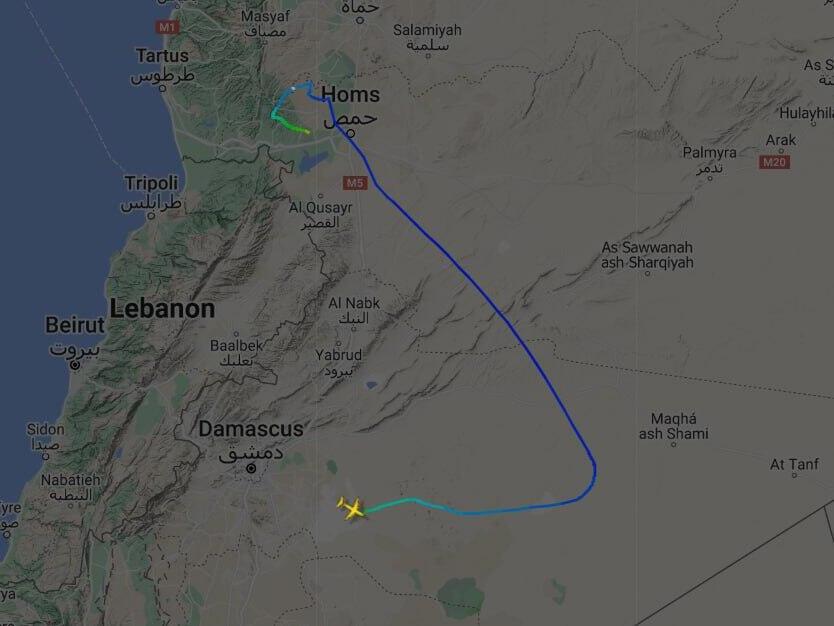Getting your Trinity Audio player ready...
Hours after the fall of the Assad regime in Syria, the whereabouts of Bashar Assad remain unknown and, according to some reports, he may have been killed. As rebel troops entered Damascus early on Sunday, the deposed leader's plane was seen taking off toward the coast, according to reports, but then it disappeared from the radar near Homs after it made a U-turn.
Two Syrian sources told Reuters that the plane may have crashed but that has not been confirmed, and Russia said Assad had left the country after "deciding to step down."
CNN reported citing rebel sources that there is a search underway for Assad and that Syrian military officers and intelligence officials are being questioned. An advisor to the UAE government said he did not know where Assad was and Turkish Foreign Minister Hakan Fidan said he could not comment on the deposed leader's whereabouts but said he was likely outside Syria, although he could not be sure.
As questions regarding Assad's safety continued, two Syrian sources told Reuters that there was a "high probability" that his plane crashed after takeoff. They explained that the strange U-turn that was observed and the subsequent disappearance from the radar was inexplicable and could be because the plan's transponder was turned off, although the possibility of a the plane being shot down, was more likely.
Assad's escape from Damascus followed his wife and children's departure days earlier. There is also no knowledge of the whereabouts of his defense minister. Assad's brother Maher, who commanded the 4th division of the military, charged with defending the capital, also escaped, probably to the Syrian coast, an area that has not yet been taken by rebel forces. He was expected to use the local airport to leave the country.
Rebels enter Damascus Presidential palace after the fall of the regime
The fall of the Assad regime marks the end of the 13-year long civil war that began during the Arab Spring. Over half a million people died in the war and millions of Syrians were displaced, some becoming refugees in their own land and others seeking shelter abroad.
Get the Ynetnews app on your smartphone: Google Play: https://bit.ly/4eJ37pE | Apple App Store: https://bit.ly/3ZL7iNv
Since 2020, the fighting was mostly suspended and many Arab leaders who had boycotted Assad at the start of the war, renewed ties with his regime after believing that he had won and would remain in power.
Officials in the Middle East said the fall of Assad was a result of the failures of Iran after Hezbollah's losses in the war against Israel and the military defeat of Hamas in Gaza. Assad's Syria was the main source of arms smuggling for Hezbollah and it allowed pro-Iran militias to embed and operate near the Syria border with Israel.
An official in Iran's Revolutionary Guards Corps referred to the collapse of the Assad regime, saying that "this is the fall of the Axis' Berlin Wall." He said, "In 11 days, we lost everything we fought for for 13 years."









